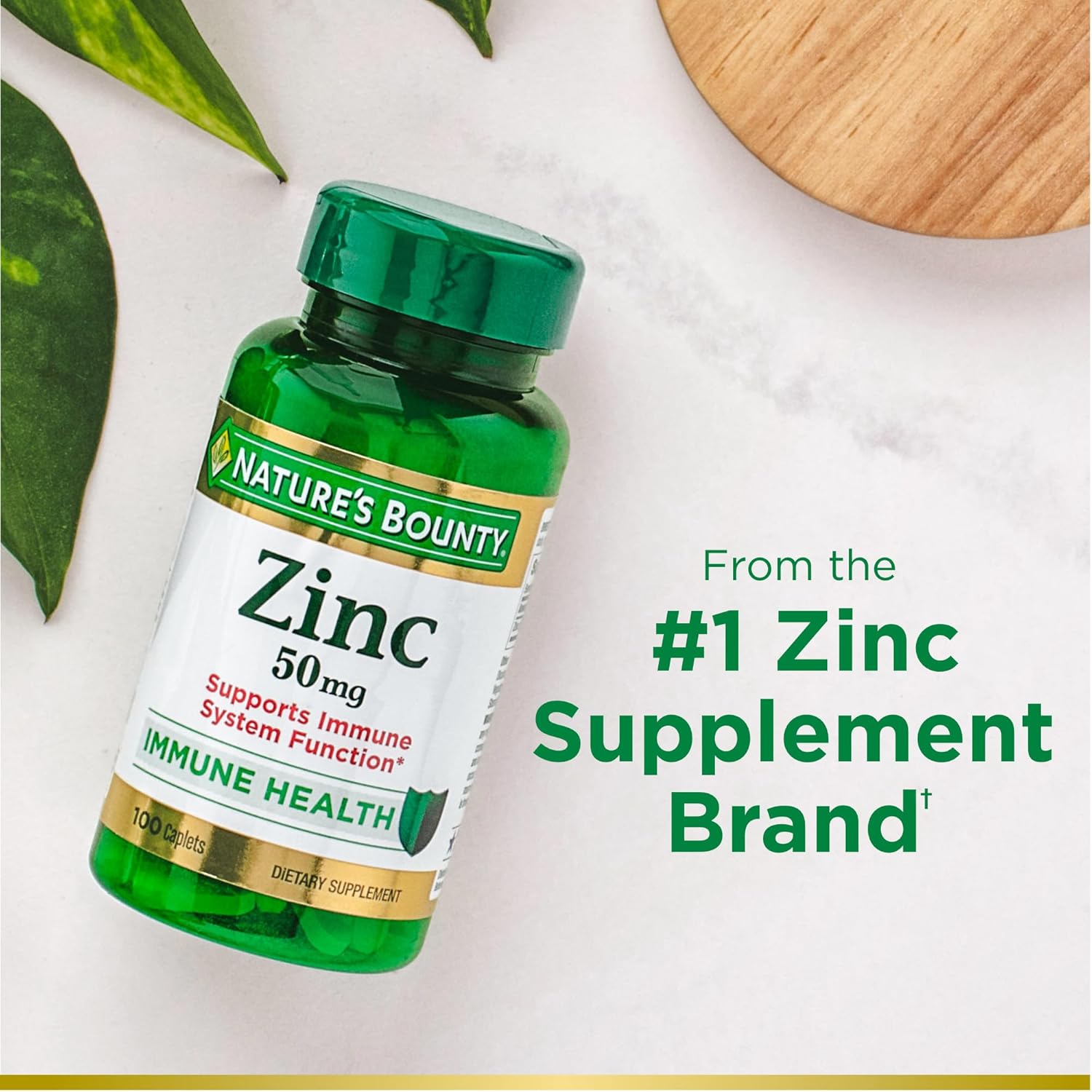





Price: $6.69 - $4.48
(as of Apr 02, 2025 11:18:39 UTC - Details)
What’s the Best Time to Take Zinc? A Comprehensive Guide
Zinc is an essential mineral that plays a significant role in various bodily functions, from boosting your immune system to promoting wound healing. However, many people wonder, "What’s the best time to take zinc?" This article dives into this crucial question and explores how to maximize the benefits of zinc supplementation. We’ll cover everything from the best time to take it, to the different forms of zinc available, ensuring you have all the information you need to make an informed decision.
Understanding Zinc and Its Benefits
Before we delve into the best time to take zinc, let’s take a moment to understand why this mineral is so vital. Zinc is key for immune health, protein synthesis, wound healing, DNA synthesis, and cell division. It helps keep your skin healthy and supports a strong metabolism. Given its wide-ranging benefits, determining the right time to take zinc can optimize its effectiveness.
When Is the Best Time to Take Zinc?
Morning vs. Evening: What’s the Difference?
One of the most common questions people ask is whether it's better to take zinc in the morning or the evening. Taking zinc in the morning can be beneficial if you’re looking for an energy boost throughout the day. On the other hand, taking it in the evening may help with relaxation and recovery as you wind down for the night.
On an Empty Stomach or With Food?
Another essential factor to consider is whether to take zinc on an empty stomach or with food. Taking zinc on an empty stomach can enhance absorption. However, it may also cause nausea in some individuals. If you experience stomach upset, consider taking it with a meal. Foods rich in protein, such as meat and dairy, can enhance zinc absorption, making it a good option to pair with your meal.
The Different Forms of Zinc
Zinc Gluconate: A Popular Choice
Zinc gluconate is a common form of zinc found in many supplements. It’s easily absorbed and often recommended for immune support. If you’re considering taking zinc for its immune-boosting properties, this form may be ideal.
Zinc Citrate: Enhanced Absorption
Zinc citrate is another well-absorbed form of zinc. It’s often recommended for those who may have sensitive stomachs, as it tends to be gentler than other forms. If you’re prone to gastrointestinal discomfort, zinc citrate might be the way to go.
Zinc Picolinate: The Most Bioavailable Option
Zinc picolinate is considered one of the most bioavailable forms of zinc, meaning your body can absorb it more efficiently. If you’re looking for maximum effectiveness, especially if you have a health condition that affects zinc absorption, zinc picolinate could be the best choice for you.
How Much Zinc Should You Take?
Recommended Daily Allowance
The recommended daily allowance (RDA) for zinc varies by age, gender, and life stage. For adult men, the RDA is about 11 mg, while for adult women, it’s about 8 mg. If you're pregnant or breastfeeding, your needs may be higher. Always consult with a healthcare professional before starting any supplement.
Signs You Might Need More Zinc
If you notice symptoms like frequent infections, slow wound healing, or hair loss, it may indicate a zinc deficiency. In such cases, increasing your zinc intake, either through diet or supplements, could be beneficial.
Potential Side Effects of Zinc
What to Watch Out For
While zinc is generally safe when taken in appropriate amounts, taking too much can lead to side effects such as nausea, diarrhea, and headaches. High doses can also interfere with the absorption of other essential minerals like copper. Always stick to the recommended dosage and consult a healthcare professional if you have concerns.
Interactions with Medications
Zinc can interact with certain medications, including antibiotics and diuretics. If you’re on any medication, it's crucial to discuss with your doctor before adding zinc supplements to your routine.
Conclusion
In conclusion, understanding what’s the best time to take zinc can help you maximize its benefits. Whether you choose to take it in the morning or evening, on an empty stomach or with food, the key is to find what works best for your body. Remember to consider the different forms of zinc available and consult with a healthcare professional to determine the right dosage for your needs. By following these guidelines, you can ensure you're reaping the full benefits of this essential mineral.
In summary, zinc is a powerful ally for your health, and knowing how and when to take it can make all the difference. So, are you ready to incorporate zinc into your daily routine?
SUPPORTS IMMUNE HEALTH (1): Zinc is a trace element that plays a vital role in immune support (1)
ANTIOXIDANT SUPPORT: Zinc can function as an antioxidant in the body, contribute to skin and bone health, and assist in the formation of DNA. (1)
THE #1 ZINC BRAND (2): Nature's Bounty is the number 1 brand for zinc supplements. (2) Our Our Zinc Caplets are non-GMO and sugar- and gluten-free
SKIN HEALTH: As a component of the enzyme collagenese, Zinc has been clinically studied for its contribution to skin health (1)
FROM THE TRUSTED WELLNESS EXPERTS: Nature’s Bounty Zinc supplements are a product of 50 years of dedication to quality, consistency, and scientific research to make vitamins and nutritional supplements of unrivaled excellence
